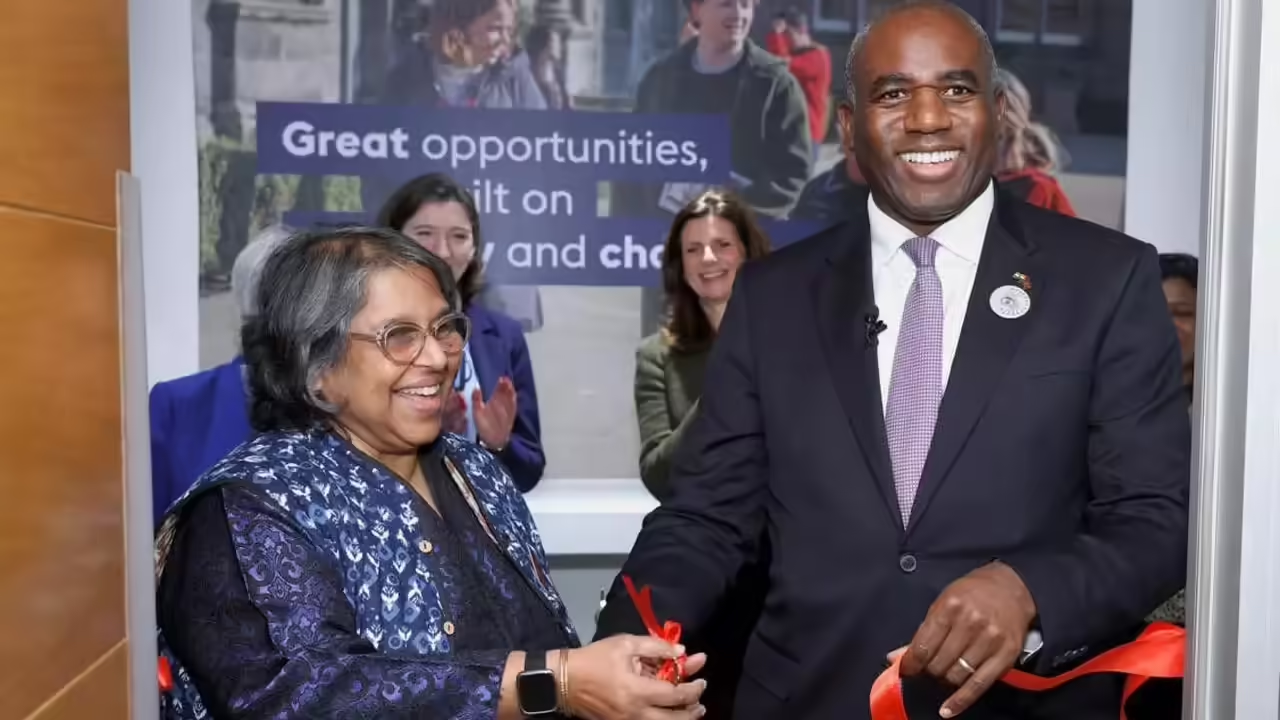India’s renewed interest in Africa is part of a broader effort to challenge China’s economic dominance in the region
Indian companies are poised to make significant investments in Africa, signaling a growing commitment to support Prime Minister Narendra Modi’s ambitions to expand India’s influence on the continent. This development was underscored by a recent announcement where a group of Indian conglomerates pledged a substantial $14 billion investment in Nigeria. These commitments, made on September 6, have drawn attention to the increasing momentum within the private sector to engage more actively in Africa, coming just three days before the G20 welcomed the African Union into its fold.
India’s renewed interest in Africa is part of a broader effort to challenge China’s economic dominance in the region. Analysts have noted that competing with China in Africa has long been a goal in New Delhi, and Prime Minister Modi has accelerated these efforts. Under his leadership, India has deepened strategic ties with Africa through initiatives like the 10-point Kampala Principles, the signing of its first African free trade agreement with Mauritius in 2021, and hosting senior officials from 17 African states.
However, a key distinction between India and China lies in the relationship between their private and public sectors. Unlike China, where the government significantly influences corporate investment decisions abroad, India’s large corporations, both state-owned and private, tend to operate independently of diplomatic and strategic objectives. This has limited India’s ability to match China’s substantial investment drive in Africa, which has leveraged state funding and government-to-government agreements to become the continent’s second-largest source of greenfield capital expenditure since 2003.
Alongside high-profile commitments by conglomerates, there is a growing emphasis on engaging small and medium-sized enterprises (SMEs) in this shift towards Africa. Investment by SMEs is supported by India’s substantial diaspora, particularly in East Africa, South Africa, and Ghana
Nevertheless, the $14 billion in investment pledges from Indian companies highlights a growing recognition of the opportunities presented by Africa, the continent with the fastest-growing population. These commitments include Indorama Petrochemical’s plan to inject $8 billion into an existing fertiliser and petrochemical facility in Rivers state, Jindal Steel and Power’s expression of interest in establishing a $3 billion steel plant, SkipperSeil’s $1.6 billion investment in renewable power projects, and Bharti Enterprises’ $700 million expansion of its communication network.
Data from fDi Markets reveals that Africa has become the primary recipient of Indian greenfield capital expenditure over the past five years, a significant jump from its previous fifth-place ranking. In the last year, Indian firms announced a record-high $22.2 billion in foreign direct investment into Africa. Business groups anticipate further growth in Indian investments on the continent, with the Confederation of Indian Industry urging firms to increase their investments in Africa from $74 billion to $150 billion by 2030. Initiatives like the India-Nigeria Business Council, launched in the previous year, are expected to play a pivotal role in tapping into bilateral trade and investment opportunities.
Notably, alongside these high-profile commitments by conglomerates, there is a growing emphasis on engaging small and medium-sized enterprises (SMEs) in this shift towards Africa. Investment by SMEs is supported by India’s substantial diaspora, particularly in East Africa, South Africa, and Ghana. These individuals, with their local contacts and entrepreneurial spirit, have played a significant role in facilitating Indian companies’ expansion and investments on the continent. Their expertise and connections continue to be valuable assets in the endeavor to strengthen India-Africa economic ties.
**************************************************
Readers
These are extraordinary times. All of us have to rely on high-impact, trustworthy journalism. And this is especially true of the Indian Diaspora. Members of the Indian community overseas cannot be fed with inaccurate news.
Pravasi Samwad is a venture that has no shareholders. It is the result of an impassioned initiative of a handful of Indian journalists spread around the world. We have taken the small step forward with the pledge to provide news with accuracy, free from political and commercial influence. Our aim is to keep you, our readers, informed about developments at ‘home’ and across the world that affect you.
Please help us to keep our journalism independent and free.
In these difficult times, to run a news website requires finances. While every contribution, big or small, will makes a difference, we request our readers to put us in touch with advertisers worldwide. It will be a great help.
For more information: pravasisamwad00@gmail.com








